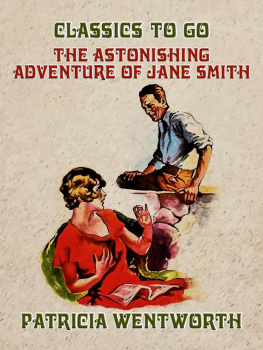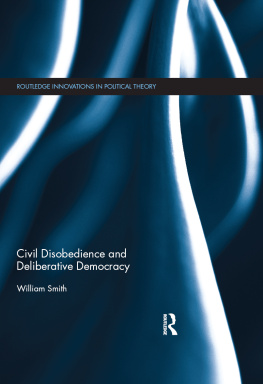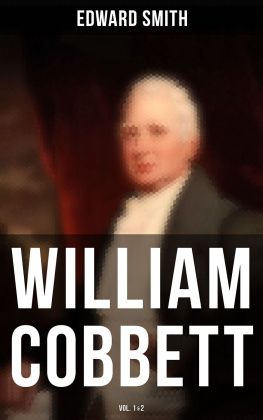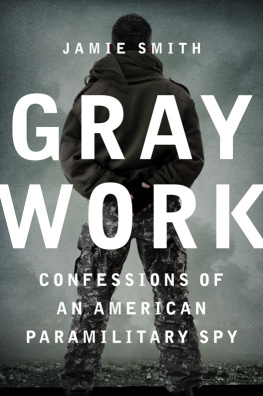Patricia Wentworth - The Case of William Smith
Here you can read online Patricia Wentworth - The Case of William Smith full text of the book (entire story) in english for free. Download pdf and epub, get meaning, cover and reviews about this ebook. genre: Detective and thriller. Description of the work, (preface) as well as reviews are available. Best literature library LitArk.com created for fans of good reading and offers a wide selection of genres:
Romance novel
Science fiction
Adventure
Detective
Science
History
Home and family
Prose
Art
Politics
Computer
Non-fiction
Religion
Business
Children
Humor
Choose a favorite category and find really read worthwhile books. Enjoy immersion in the world of imagination, feel the emotions of the characters or learn something new for yourself, make an fascinating discovery.

- Book:The Case of William Smith
- Author:
- Genre:
- Rating:4 / 5
- Favourites:Add to favourites
- Your mark:
- 80
- 1
- 2
- 3
- 4
- 5
The Case of William Smith: summary, description and annotation
We offer to read an annotation, description, summary or preface (depends on what the author of the book "The Case of William Smith" wrote himself). If you haven't found the necessary information about the book — write in the comments, we will try to find it.
The Case of William Smith — read online for free the complete book (whole text) full work
Below is the text of the book, divided by pages. System saving the place of the last page read, allows you to conveniently read the book "The Case of William Smith" online for free, without having to search again every time where you left off. Put a bookmark, and you can go to the page where you finished reading at any time.
Font size:
Interval:
Bookmark:

Patricia Wentworth
The Case of William Smith
Miss Silver #14, 1948
Prologue
A concentration camp in Germany Christmas Day, 1944.
William Smith was dreaming his dream. Like his fellow prisoners, he had spent more than five hours of Christmas morning standing at attention on the square in his ragged underclothes exposed to a bitter north-east wind. Some of the men who had stood there with him would never stand again. They had dropped and died. William had stuck it out. He was strong and tough, and he was not racked as other men were racked by what might be happening to their families. Since he did not know who he was, he did not so much as know whether he had a family. When the Commandant had said, addressing them all, If you have wives and children, forget them you will never see them again, he was stirred to a just and impersonal anger, but not to any private feeling, because life as far as he was concerned had begun two years ago when he came out of hospital with an identity disc which said he was William Smith. There was a long number as well as the William Smith, but he was never able to feel that it belonged to him. They put him in a camp as William Smith, and after he had escaped and been caught the S.S. took him over and put him in a concentration camp. Since then he had been moved twice, and each camp was worse than the last. In this camp he was the only Englishman. He knew some French, and he had learned some German. An old Czech who had a knife which he had stolen at the risk of his life used to lend it to him sometimes. They carved animals. The Czech was better at the carving, but William had a lot of bright ideas. After a bit he got very good at the carving too.
Day followed day, and night followed night. There was always hunger and filth and cold, and cruelty, and a dense fog of human suffering. It was better for William than it was for the others, because he hadnt anyone to worry about except himself, and he hadnt got that sort of temperament, so he didnt really worry at all. And sometimes at night he had his dream.
He was having it now. His body was crushed in among other bodies on a bare and filthy floor, but William wasnt there. He was having his dream, and in his dream he was walking up three steps to an oak door. It always began that way. The steps were old, and hollowed in the middle from all the feet which had passed over them for many generations. They started in the street and they went up to the door, which was the front door of a house. It was a house in a street. He knew that, but he didnt know how he knew it, because he never saw any more than that three steps going up, and an oak door studded with nails.
The next thing that happened was that he opened the door and went into the house. When he was awake he could remember the three steps up and the door, but after that it was all shadowy, like things are in dreams. What he remembered was that in the dream he had come home. There was a hall, rather dark, and a staircase going up on the right, and he went up the stairs. But it was all vague and dark and shimmering, like a reflection in water when the wind ruffles it. All that he could be sure about was that it was a happy dream.
When he was asleep it was quite different. The dream was as clear and plain as anything that had ever happened to him in all his life. It was much more real than anything that happened in the camp. The hall was dark because it was panelled. The wood wasnt really dark in itself, but it made the hall dark. The stair that went up on the right was made of the same wood. The newel posts were carved with the symbols of the four Evangelists a lion and an ox at the foot of the stair, and an eagle and a man at the head. The man and the ox were on the inner side of the stair. They were only heads, but the lion had a mane flowing down over the newel at the bottom, and the eagle was a whole eagle with folded wings and great horny talons on the left-hand side at the top. At intervals there were portraits let into the panelling, some on the inner side of the stairway, and some in the hall below. In a half light there was an effect of people waiting in the shadows. When he was a little boy it had frightened him.
In his dream he went on up the stairs. So far it was always the same. It was after he got to the top that it began to be different. Since his recollection ceased with the dream, he had no means of knowing what the difference was. He only knew each dream whilst he was dreaming it. When he was awake all that remained was the three steps up out of the street, the door, the shadowy hall with the stair going up, and the sense of coming home.
On this Christmas night, with his body lying crowded in between other bodies filthier than his own, he himself sprang up the three steps and came into the hall. He came out of the dark street into warmth and light. The curtains were drawn over a window on either side of the door and all the lights were on. A powdered wig emerged from the gloom of one portrait, the sweep of a faded rose-coloured dress and a childs white muslin frock from another. The lion and the ox at the stair foot were crowned with holly, and over the stair head there hung a great pale bunch of mistletoe. An extraordinary rush of happiness came over him. It was so strong that it fairly swept him up the stairs. No time to look at old dead and gone relations in the shadows, no eyes for anything except the one who was waiting for him on the top step between the eagle and the man under the mistletoe.
Chapter One
Brett Eversley was reading a letter which he had already read quite a number of times. He liked it so little that one would hardly have supposed he would desire to read, and read it again, yet that is what he was doing. The letter had come by the first post. He had opened it with a smile and been immediately thrown into rather a desperate state of mind. Since then he had gone over every word, every phrase, in an attempt to find a different meaning from the one he could not bring himself to accept. Women said one thing and meant another it was proverbial. They liked to be courted, flattered, pursued. They liked to make a man show his paces put him through the hoop.
He was a good-looking man, and he had always had money to spend. Women had run after him, and he had let them run. At forty he had kept his freedom, his figure, and a decidedly good opinion of Brett Eversley. At the moment his handsome face was flushed, his dark eyes brooding, his brows drawn together in a frown. When he looked like that you could see that in the next ten years the regular features might coarsen, the lower part of the face become too heavy, and the colour fixed. On the other hand, grey hair would probably suit him very well and impart an eighteenth-century air. He really was not at all unlike some portrait of a full-flavoured Georgian squire.
As he sat at the desk in his private office at Eversleys, he had the letter spread out before him. However many times he read it, he found himself unable to accept its evidence. It just wasnt possible that Katharine was turning him down. He read what she had written:
Dear Brett,
Im afraid its no use, and the best thing I can do is just to tell you so and say Lets go on being friends. I said I would think it over, and I have. It isnt any use, really. Youre a cousin and a friend, and thats what we are to each other. I cant change into being anything else. Its just one of those things. Dont worry about the money Im getting a job.
Yours
Katharine.
Not very easy to get anything out of it except a plain downright No. He went on trying. It was a mood. Women had moods. They were changeable. She had withdrawn before, and then been kind again. Kind His own word might have warned him, but he was resolute to find what he wanted. She was kind, she was fond of him what more did she want? She couldnt just go on refusing one man after another. She had known him all her life. As far as he could tell there wasnt anyone she liked better. It would be a most suitable marriage. It wasnt as if she was a girl of twenty. She must be a good eight years older than that. She had had her fling, and he had had his. You had to settle down some time, and if he could bring his mind to it, so could she. He really did find it impossible to believe that her refusal could be final.
Next pageFont size:
Interval:
Bookmark:
Similar books «The Case of William Smith»
Look at similar books to The Case of William Smith. We have selected literature similar in name and meaning in the hope of providing readers with more options to find new, interesting, not yet read works.
Discussion, reviews of the book The Case of William Smith and just readers' own opinions. Leave your comments, write what you think about the work, its meaning or the main characters. Specify what exactly you liked and what you didn't like, and why you think so.







